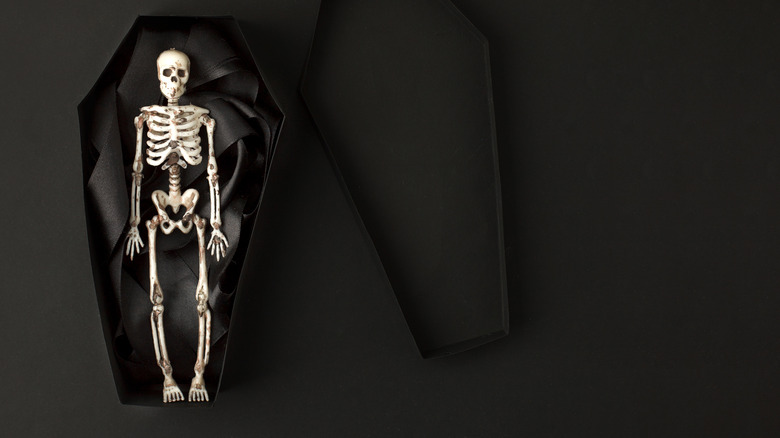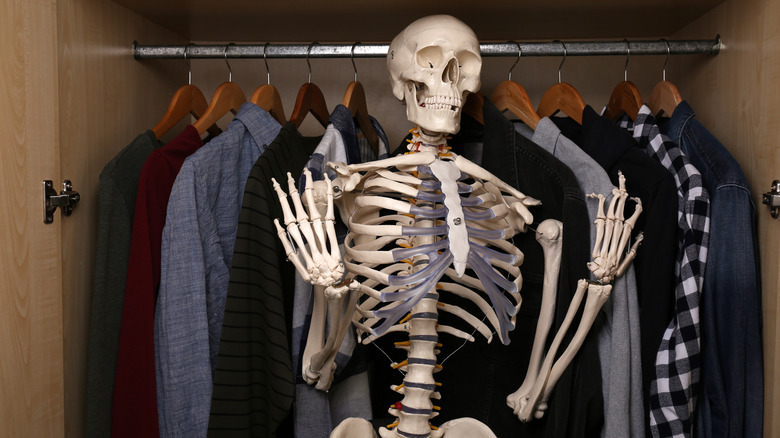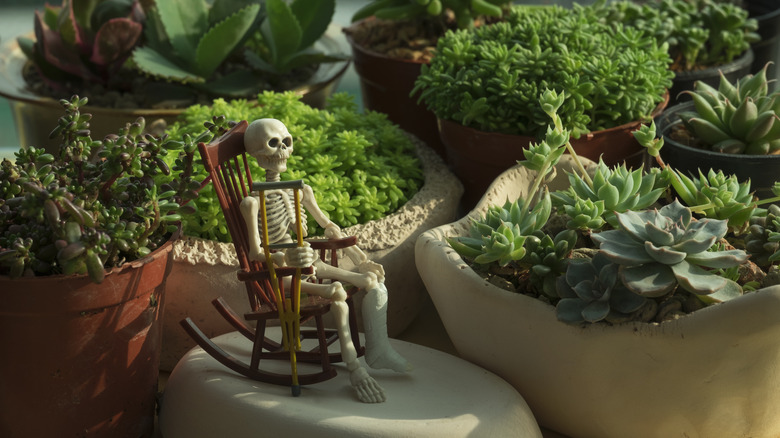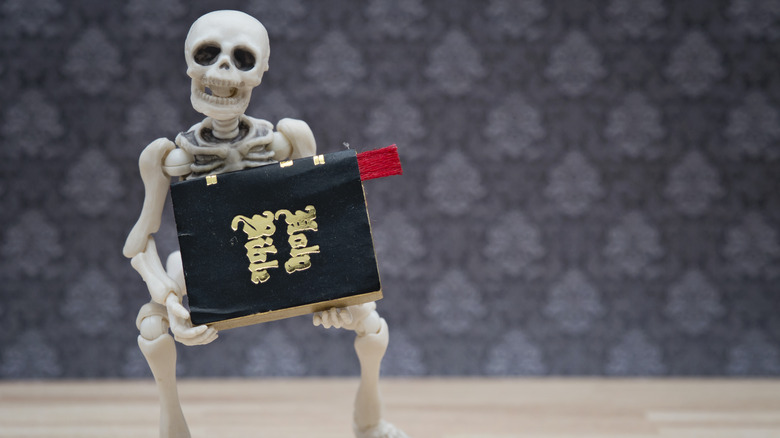The Real Reason People Are Buried Without Shoes
The next open casket funeral you go to, lift up the lid on the bottom half of the coffin. If you are not too distracted by a bevy of loved ones yelling at you, scolding you, and shouting "how dare you," you might notice that the deceased is not wearing shoes. In fact, this is fairly common in burials, at least in Western culture.
You might guess the first reason for this immediately: Since many coffins only show the upper half of a dead person's body, putting on shoes is simply unnecessary unless the family of the deceased requests it, according to Love to Know. In fact, since these coffins only show half a person's body, you could probably even get away with burying grandpa without pants, too (maybe that's what he would have wanted?).
But there are other reasons for the dead going shoeless as well, including ecological, practical, and physical concerns.
If the shoes fit, you're lucky
During a long illness, a suffering patient may lose weight to the point where their feet get smaller, according to Wilson's Funeral Advice. After a person dies, their body undergoes an array of changes, such as rigor mortis, that may distort their extremities or even bloat them. In other words, it's unpredictable whether or not any of the dead person's shoes will even fit anymore.
Over the years, some companies have made special slippers for this purpose. The Columbus, Ohio, shoemakers at the Practical Burial Footwear Company made stretchy shoes that could fit over the "substantially distorted" feet of a dead person who had undergone rigor mortis. "After death, the toes and the forward portion of the foot become drawn down from rigor mortis or other causes," their patent explained (via Cult of Weird), "and no entirely satisfactory way has been found to correct this deformation of the foot." The footwear company dealt with this by adding substantial give to their downright luxurious shoes — Cult of Weird spotlights one pair, a soft pink set of velvet pumps.
But during the expensive funeral process, a grieving family might not want to make an additional purchase that many would consider unnecessary. Going barefoot is free. And, as it turns out, it's better for the environment.
Shoes are full of pollutants
Many modern shoes are also made from artificial materials that take a long time to biodegrade and potentially drain chemicals into the soil (via JoinCake). For ecologically-minded families, particularly those opting for an otherwise green burial, this might be unacceptable. In fact, many kinds of clothes aren't suitable for a green burial, according to Funeral Guide. While untreated natural fibers like cotton, wool, linen, hemp, or bamboo are acceptable for green funerals, any artificial materials — even small details like elastic waistbands, polyester linings, or metal zippers — are not allowed.
Even if the decedent has not requested a green funeral, if they are cremated, they may not be allowed to wear shoes. Treated leather and rubber soles are considered hazardous to burn, for both safety and environmental reasons, per Funeral Guide. Medical devices like pacemakers can explode inside a cremation chamber as well, per The Guardian.
Shrouds and bequeathment
For some cultures, it's traditional to be buried in a burial shroud instead of a suit or dress (or pajamas, or superhero costume, or whatever else the people involved have decided on). In these cases, shoes are typically not worn, since the shroud is long enough to cover the feet (though sometimes booties are provided, just in case — via Gutterman's). In Judaism, for instance, it's traditional for the deceased to wear a white linen shroud called a tachrichim, according to My Jewish Learning. Other religions use funereal shrouds too, particularly Islam (per Islamic Burial), and they can be found across cultures all around the world, according to the green funeral company Kinkaraco.
Besides all of the above reasons for the dead to go shoeless: Have you seen the price of quality footwear these days? One traditional (and environmentally friendly) way of dealing with a deceased person's shoes is to give them away as gifts. In the Middle Ages, they could be bequeathed by name in a person's will, according to Love to Know. This didn't just have economic benefits, either — people believed this was a way of keeping the spirit of the dead person alive. So go on, and walk a few miles in a dead person's shoes. With each step, you can feel gratitude that someone else already broke them in for you.



